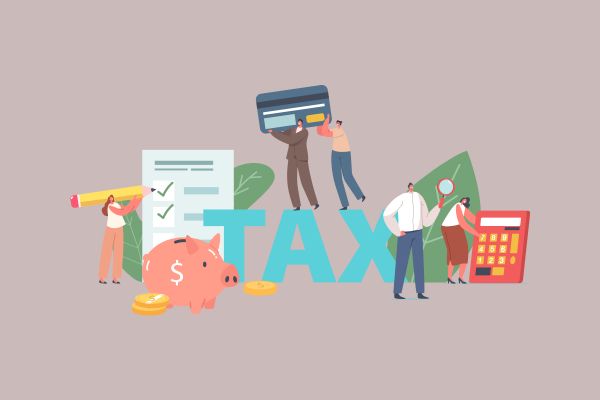Proposal of Goods and Services Not Subject to VAT Reduction in 2024? Will the VAT Reduction Period Extend Until the End of 2024?
Proposal for Goods and Services Exempt from VAT Reduction in 2024?
On November 29, 2023, the National Assembly passed Resolution 110/2023/QH15 regarding the 6th Session, 15th National Assembly.
The VAT reduction policy according to Resolution 110/2023/QH15 approved by the National Assembly is as follows:
A 2% reduction in the VAT rate for groups of goods and services specified at point a, section 1.1, clause 1, Article 3 of Resolution 43/2022/QH15 of the National Assembly on fiscal and monetary policies supporting the Socio-Economic Recovery and Development Program from January 1, 2024, to June 30, 2024.
The Government of Vietnam is entrusted to promptly and effectively implement without affecting the state budget's revenue estimates and fiscal deficit for 2024 as per the National Assembly's resolution and report the results at the 7th Session, 15th National Assembly.
To quickly implement the above content starting from 2024, the Ministry of Finance has drafted a Decree regulating a 2% VAT reduction policy, proposing the list of goods and services not eligible for the VAT reduction as follows:
A 2% reduction in the VAT rate applies to groups of goods and services currently subject to a 10% VAT rate (back to 8%), except for the following groups of goods and services: telecommunications, information technology, financial activities, banking, securities, insurance, real estate business, metals, products made from pre-cast metals, mineral products (excluding coal mining), coke, refined petroleum products, chemical products, and goods and services subject to special consumption tax.
Thus, goods and services not eligible for the VAT reduction to 8% from January 1, 2024, to June 30, 2024, include:
- Telecommunications;
- Information technology;
- Financial activities;
- Banking;
- Securities;
- Insurance;
- Real estate business;
- Metals;
- Products made from pre-cast metals;
- Mineral products (excluding coal mining);
- Coke;
- Refined petroleum products;
- Chemical products;
- Goods and services subject to special consumption tax.

Proposal for Goods and Services Exempt from VAT Reduction in 2024? Will the VAT reduction be extended till the end of 2024?
Will VAT Reduction Last Until the End of 2024?
According to the consensus at the 6th Session of the National Assembly, the VAT reduction will only last until June 30, 2024.
To be specific: The draft Decree regulating a 2% VAT reduction policy also states clearly:
Effective and Implementation:
1. This Decree is effective from January 1, 2024, to June 30, 2024.
2. Ministries, within their functions and tasks, and the People's Committees of provinces and centrally-run cities, are directed to deploy, guide, inspect, and supervise so that consumers understand and benefit from the VAT reduction as stipulated in Article 1 of this Decree, focusing on solutions to stabilize supply and demand for goods and services subject to VAT reduction to maintain market price stability (pre-tax price) from January 1, 2024, to June 30, 2024.
3. During implementation, if issues arise, the Ministry of Finance will provide guidance and resolution.
4. Ministers, Heads of ministerial-level agencies, Heads of agencies under the Government of Vietnam, Chairmen of People's Committees of provinces and centrally-run cities, and related enterprises, organizations, and individuals are responsible for implementing this Decree.
The VAT reduction period for 2024 lasts from January 1, 2024, to June 30, 2024.
Where to Pay Value-Added Tax?
Pursuant to Article 20 of Circular 219/2013/TT-BTC, the regulation on the place of tax payment is as follows:
Place of Tax Payment:
1. Taxpayers shall declare and pay VAT at the locality where production and business activities take place.
2. Taxpayers who declare and pay VAT by the credit method with dependent accounting production facilities located in provinces or centrally-run cities different from the province or centrally-run city where the head office is located shall pay VAT at the locality where the production facilities and the head office are located.
3. In cases where enterprises and cooperatives applying the direct method have production facilities in provinces or centrally-run cities other than where the head office is situated or have retail activities in other provinces, they shall declare and pay VAT based on the percentage of turnover generated from sales in other provinces at the locality where such production facilities or retail activities take place. Enterprises and cooperatives do not need to pay VAT based on the percentage of turnover at the head office for turnovers that have already been declared and paid in other provinces.
4. For telecommunication service businesses providing postpaid telecommunication services in a province or centrally-run city different from where the head office is situated and establishing dependent accounting branches using the credit method to participate in postpaid telecommunication business activities in that locality, the telecommunication service business shall declare and pay VAT for postpaid telecommunication services as follows:
- Declare VAT on the turnover of postpaid telecommunication services of the entire business with the tax authorities directly managing the head office.
- Pay VAT at the locality where the head office is situated and at the locality where the dependent accounting branches are located.
The VAT payment amount at the locality where the dependent accounting branches are located is determined by a rate of 2% (for postpaid telecommunication services subject to 10% VAT) on the turnover (excluding VAT) of postpaid telecommunication services in the locality where the dependent accounting branches are situated.
5. The declaration and payment of VAT are carried out according to the Law on Tax Administration and related guiding documents.
Thus, taxpayers declare and pay VAT at the locality where production and business activities take place. Based on the actual operational situation, appropriate tax payment locations are determined according to the above regulations.
LawNet